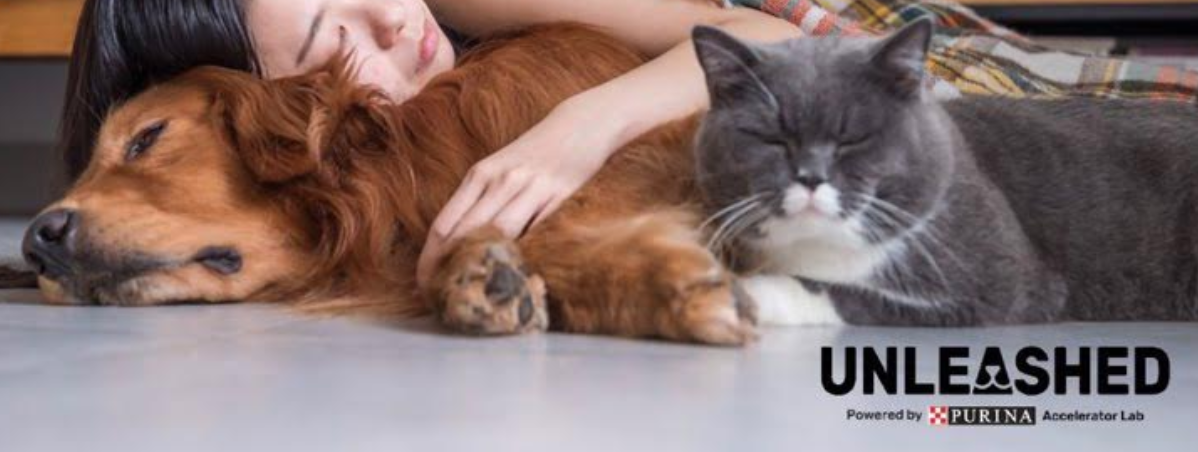Nestlé’s fast-growing Purina Petcare division is joining the startup accelerator movement, with five pet care startups joining its first-ever 6-month programme. Each will get at least SFr 50,000 (€47,000) in financial support, as well as mentoring and practical help from Purina in scaling the business.
The 126-year-old pet food and cat litter company, which was bought by Nestlé in 2001, has been on something of a roll in recent years thanks to an increased willingness by consumers to spend money on their pets. It was the biggest contributor to Nestlé’s growth last year and has made a steady stream of acquisitions. Purina is also no stranger to jumping on trends — it got a huge amount of press in 2014 for opening the first cat cafe in the US.
European startups don’t get the visibility (or money) that US ones do, and it is even worse for the startups in petcare.
It has been running the Pet Care Innovation Prize in the US for several years, where US startups have a chance to win $10,000 in financial support and the chance to work on a pilot project with Purina.
But now, Kim Bill, head of Purina accelerator lab, says the company wants to run a full accelerator programme, with a particular focus on finding great European pet care startups.
“European startups don’t get the visibility (or money) that US ones do, and it is even worse for the startups in petcare. It is a big sector — I counted more than 330 startups in my initial search — but a very neglected one,” says Bill.
The European pet care market — with staggering 75m cats and 65m dogs — is estimated to be worth €39.5bn. But apart from a handful of companies, such as Berlin’s Zooplus, an online pet store (which has a valuation of around €509m), there are few startups that have— gained a big profile in this area.
Future Proof asked her about how she plans to run the Unleashed accelerator programme.
What is the structure of the programme?
Purina received some 120 applications from 28 countries, and selected five companies to work with. Startups had to have at least a minimum viable product and want to scale. Anything too early stage was not suitable.
The five startups selected for the accelerator are BorrowMyDoggy, a London-based company connecting dog owners with a community of people who would like to walk and care for dogs; Natu, a Barcelona-based startup making plant-based pet food; OneMind Dogs, a Helsinki-based online dog training company; Petable, a Lisbon-based company that makes ecommerce sites for vets; and BlueNalu Innovations, a San Diego-based company growing fish from cell cultures for pet food (yes, they have let a US startup in although the programme is run from the Europe, Middle East and Africa division).

They will work with Purina for 6 months, each with a particular project.
Petable, for example, helps independent veterinary practices build and run online stores where they can sell pet healthcare products. Many customers would want to buy items recommended by their vet and having their own online store helps them cash in on this market.
Purina is helping Petable improve the software, and is using its relationships with veterinary practices to help Petable win new customers. A pilot project will run in Portugal to see how well this works. It’s hoping the stores will be stocking Purina products, but there is no exclusivity agreement — it is up to the vets what they recommend and stock.
A lot of corporate accelerators do a poor job. How are you making sure this programme works?
“It does keep me awake at night,” admits Bill. She’s focusing on getting buy-in from the Purina side. “A lot of corporate accelerators work in silos; I am trying to make sure that won’t happen here.”
A lot of corporate accelerators work in silos; I am trying to make sure that won’t happen here.
It helps that Bernard Meunier, CEO at Nestlé Purina PetCare in Europe, Middle East and North Africa, is a very visible supporter of the project.
In addition, each startup project has at least three people from the Purina side attached to it: a “project champ” who makes sure that the key milestones and objectives are reached; a “market champ” who makes the project run smoothly in the pilot market; and a “subject matter champ” who helps with the technical aspects of the partnership.
There is a show and tell session every six weeks where the startups share what they have achieved.
What does success look like?
Bill says the ideal would be for a proof of concept project to work so well that Purina decided to license the technology, made an equity investment in the startup, or decided to acquire the startup.
And if one of our companies becomes a unicorn, that would be amazing; we can say that we had backed them from the start.
Purina has had a steady stream of acquisitions. In 2013, it bought pet adoption website Petfinder; in 2014 it acquired dog and cat treats company Zuke’s; and in 2020 it purchased Lily’s Kitchen, a UK-based natural pet food brand.
But even if no financial transaction comes out of the programme, Bill says she will be happy if the teams work well together with Purina and there is some basis for an ongoing relationship.
“And if one of our companies becomes a unicorn, that would be amazing; we can say that we had backed them from the start,” she adds.
This article first appeared in our monthly Unleashed Pet Tech newsletter, a collaboration with Purina Accelerator Lab. All content is editorially independent. Sign up to our newsletter here to keep up to date with the latest goings on in the European pet tech industry.


